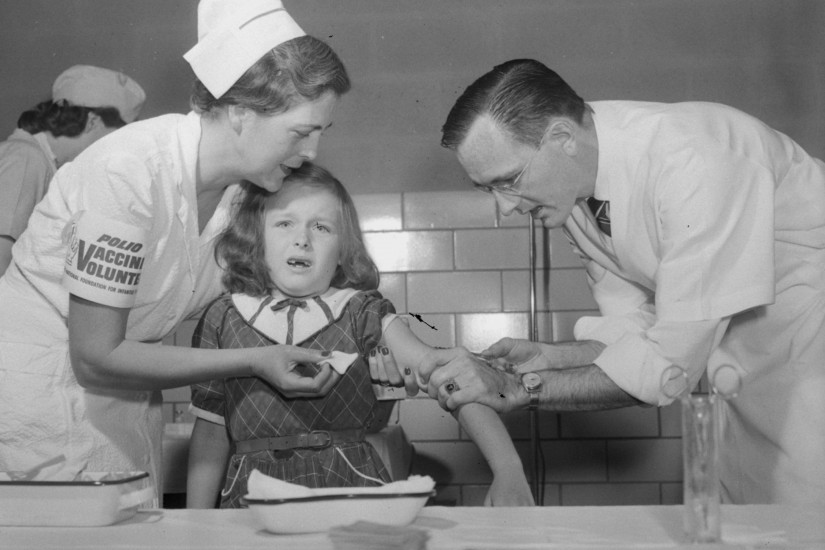Since the turn of the 20th century, mandatory vaccination has been one of America’s greatest weapons in not only battling outbreaks and eradicating certain diseases, but also preventing them. Though not without significant pushback from anti-vaxxers, who have been in the U.S. just as long.
That’s why to medical historians and ethicists, the controversy playing out over New York City’s mandatory vaccination order as the city battles a widespread measles outbreak is not an unfamiliar story. In fact, while anti-vaxxers are in the minority today—nationally, the median vaccine refusal rate among families with children in kindergarten is 2.2 percent—those who emerged in the late 19th century were fairly influential in loosening those laws.
New York City has seen 359 cases of measles since last October. Almost all are concentrated in Williamsburg, and involve unvaccinated children under 18. A little more than 300 were reported this year, accounting for almost half of the 626 cases in the U.S.—currently the second biggest outbreak since 2000, when measles was declared eliminated (meaning no continuous transmission for more than 12 months). The largest outbreak in the U.S. was in 2014, with 667 cases. Globally, there is a resurgence of measles, with cases up 300 percent since last year, according to UNICEF.
Last Thursday, a Brooklyn judge upheld the city’s emergency vaccination order after dismissing a lawsuit from families within an orthodox Jewish community who say the city had “insufficient evidence of a measles epidemic or dangerous outbreak” to justify its mandate.
That same day, health officials also issued three civil summons to parents of unvaccinated children. The parents each face a $1,000 fine for violating the order. It’s the first time health officials actually issued a fine for such violations in more than a century, according to the Washington Post.
When it comes to legal challenges to mandatory vaccination, local governments have history on their side, according to James Colgrove, who studies the the ethics of public health policy at Columbia University. He’s also the author of the book, State of Immunity, which digs into the history and politics of vaccinations in America. “This is really settled law,” he says. “This has been heard by the [U.S.] Supreme Court over 100 years ago.” One hundred fourteen years ago, to be exact.
